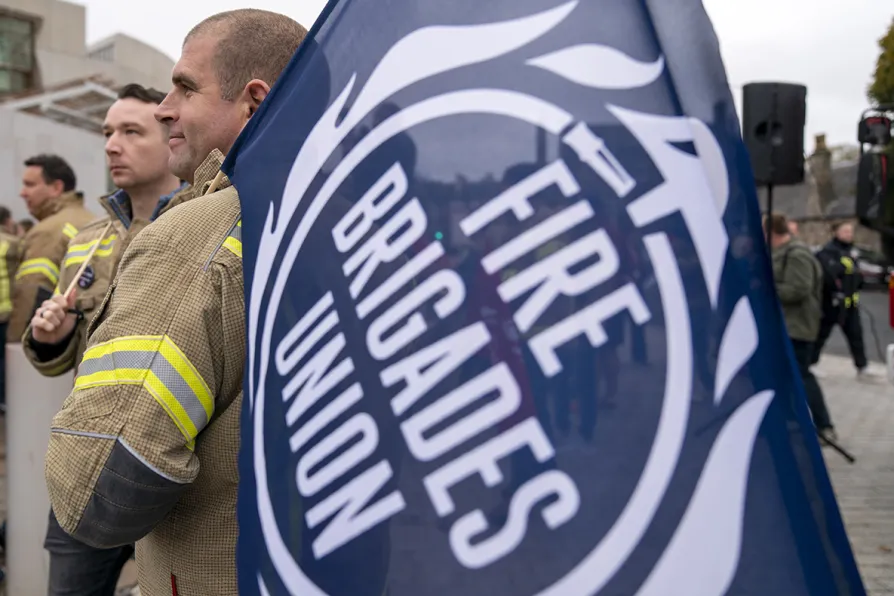
 Firefighters from the Fire Brigades Union (FBU) take part in the Cuts Leave Scars rally outside the Scottish Parliament in Edinburgh, October 26, 2023
Firefighters from the Fire Brigades Union (FBU) take part in the Cuts Leave Scars rally outside the Scottish Parliament in Edinburgh, October 26, 2023
THE Fire Brigades Union (FBU) has joined growing calls for water to be brought into public ownership to guarantee the clean and adequate supply firefighters need to tackle fires safely.
MPs are set to receive the final report from the Independent Water Commission today, which examined the water sector on behalf of the Westminster and Welsh governments.
Campaigners against sewage pollution have criticised the commission’s limited remit, which excluded the option of public ownership, imposed by ministers.
The commission was instead tasked only with reviewing regulation.
A review by academics at the People’s Commission on Water recommended public ownership as the most effective way to reduce costs, curb pollution and boost investment.
The environment, food and rural affairs select committee also recently reported that it “saw merit” in the argument that “the current models of ownership in the water industry may not be bringing about the culture the sector needs,” calling for “strong and significant reforms.”
FBU general secretary Steve Wright said the public “has a right to expect that firefighters have the clean, high-pressure water supplies they need to extinguish fires.”
“It’s preposterous that the UK, which has high rainfall, has to endure water shortages because of poor planning and investment,” he said.
“Private companies have siphoned off billions in profit while failing to adequately maintain water pipes, resulting in unreliable water pressure across England.”
Mr Wright warned that low water pressure is a national problem, as highlighted in the Grenfell Tower Inquiry, and raised concerns about the use of sewage-contaminated water in firefighting, particularly in rural areas.
“Our expensive, leaky and sewage ridden system is the direct result of a failed privatisation experiment,” he said.
“It’s time for the government to take water back into public hands. The water companies should have no entitlement to compensation.”














